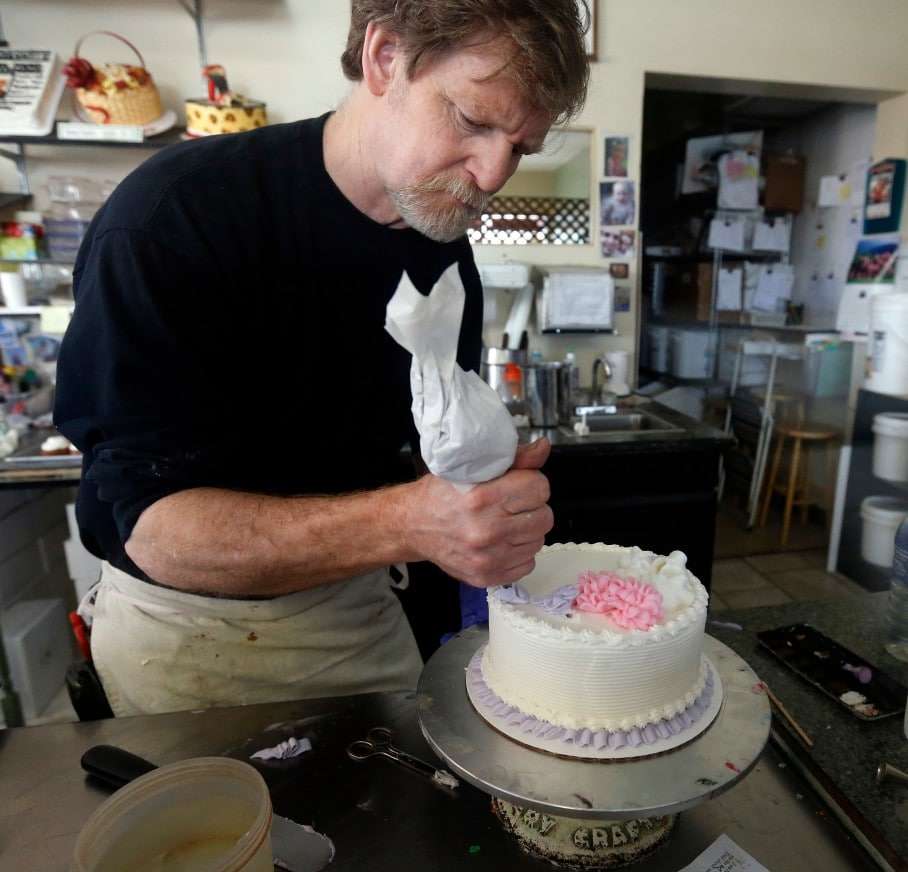The Volokh Conspiracy
Mostly law professors | Sometimes contrarian | Often libertarian | Always independent
Colorado appellate court: Bakery can be liable for refusing to bake cake for same-sex wedding

The decision, handed down today, held that a Colorado bakery can be liable under Colorado anti-discrimination law for refusing to bake a cake for a same-sex wedding, when it bakes similar cakes for traditional weddings. The court rejected the bakery's free speech and religious freedom arguments; I doubt I'll have time to comment on this in detail, but I thought I'd briefly summarize the court's reasoning (I am just describing the reasoning below, not explaining my own views):
1. The statute: Refusal to bake a cake for a same-sex wedding, because it's a same-sex wedding, is sexual orientation discrimination. "[T]he Supreme Court [has] recognized that, in some cases, conduct cannot be divorced from status. This is so when the conduct is so closely correlated with the status that it is engaged in exclusively or predominantly by persons who have that particular status. We conclude that the act of same-sex marriage constitutes such conduct because it is 'engaged in exclusively or predominantly' by gays, lesbians, and bisexuals."
2. Free speech: Requiring that a bakery bake the cake isn't "compelled speech" or "compelled symbolic expression." "[T]he act of designing and selling a wedding cake to all customers free of discrimination does not convey a celebratory message about same-sex weddings likely to be understood by those who view it…. [T]o the extent that the public infers from a Masterpiece wedding cake a message celebrating same-sex marriage, that message is more likely to be attributed to the customer than to Masterpiece."
3. More free speech: The matter might (or might not) be different if the customers had wanted an inscription on the cake:
We recognize that a wedding cake, in some circumstances, may convey a particularized message celebrating same-sex marriage and, in such cases, First Amendment speech protections may be implicated. However, we need not reach this issue…. Phillips denied Craig's and Mullins' request without any discussion regarding the wedding cake's design or any possible written inscriptions.
4. Still more free speech: The bakers are not forbidden from expressing their opposition to same-sex marriage (paragraph break added):
Finally, CADA [the Colorado Anti-Discrimination Act] does not preclude Masterpiece from expressing its views on same-sex marriage - including its religious opposition to it - and the bakery remains free to disassociate itself from its customers' viewpoints.
We recognize that section 24-34-601(2)(a) of CADA prohibits Masterpiece from displaying or disseminating a notice stating that it will refuse to provide its services based on a customer's desire to engage in same-sex marriage or indicating that those engaging in same-sex marriage are unwelcome at the bakery. However, CADA does not prevent Masterpiece from posting a disclaimer in the store or on the Internet indicating that the provision of its services does not constitute an endorsement or approval of conduct protected by CADA. Masterpiece could also post or otherwise disseminate a message indicating that CADA requires it not to discriminate on the basis of sexual orientation and other protected characteristics. Such a message would likely have the effect of disassociating Masterpiece from its customers' conduct.
5. Religious freedom under the First Amendment: The bakers aren't entitled to a religious exemption from the law under the First Amendment's free exercise clause, because the law is neutral and generally applicable, and the free exercise clause generally doesn't mandate religious exemptions from neutral and generally applicable laws.
6. Religious freedom under the Colorado constitution's religious freedom provision: The bakers aren't entitled to a religious exemption from the law under the Colorado constitution's religious freedom provision, because that provision should be interpreted the same way as the federal free exercise clause on this score.
Though some state courts have interpreted their state constitutions' religious freedom provisions as presumptively requiring religious exemptions from generally applicable laws, the Colorado court concluded that Colorado courts have generally not done so. And "[g]iven the consistency with which" the Colorado constitution's religious freedom provision "has been interpreted using First Amendment case law - and in the absence of Colorado Supreme Court precedent suggesting otherwise - we hesitate to depart from First Amendment precedent in analyzing Masterpiece's claims." (Note also that Colorado doesn't have a Religious Freedom Restoration Act-like religious exemption statute.)
Thanks to How Appealing for the pointer.


Show Comments (0)